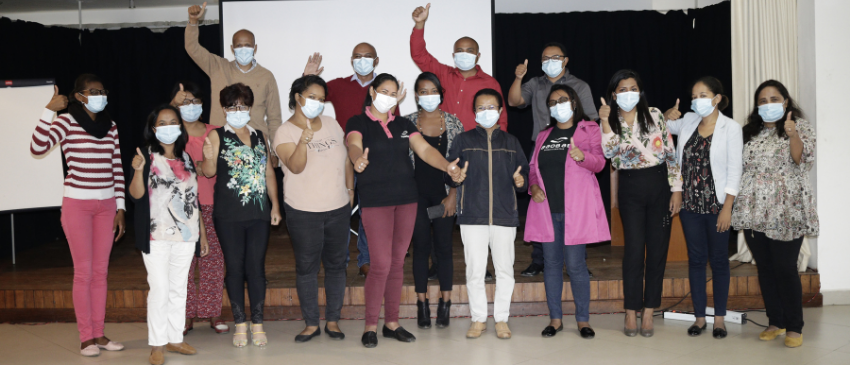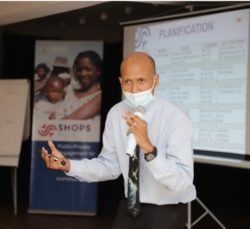
Alive and Well: Building Sustainable Business Training for the Health Sector
Private health care businesses in low- and middle-income countries face many constraints in managing their enterprises. Poor business and financial management skills limit the development of the private health sector and its ability to offer family planning, HIV/AIDS, maternal and child health care, and other essential health services. Improvements in business administration can enable providers to enhance and expand their offering of quality health services and become more financially viable. This not only benefits the provider, but also contributes to a stronger private sector that can provide critical health services. While donors have been successful in rolling out business training and other support services for the private sector, the sustainability of these initiatives has been an issue when donor funding ends.
Banyan Global was a subcontractor on the United States Agency for International Development (USAID)-funded Sustaining Health Outcomes through the Private Sector (SHOPS) Plus project that sought to leverage the full potential of the private sector to strengthen and expand the provision of health services to underserved populations. Banyan Global led access to finance (A2F) and business strengthening programming on SHOPS Plus, supporting the private sector to address the business constraints to offering and expanding quality health services.
Over the life of the project, Banyan Global developed business training and coaching services tailored to the unique needs of the private health sector in countries including Kenya, Senegal, Tanzania, and Madagascar. Banyan Global provided business training to over 2,400 private health providers (53 percent women) across Africa under SHOPS Plus. In Madagascar, 771 private providers (58 percent women) received training on how to operate their health facilities more efficiently, allowing them to treat more patients and offer higher quality services. To address a weakness of business training programs in the past, Banyan Global, under the SHOPS Plus project, contributed to the implementation of a multi-step sustainability plan to transfer training ownership to local partners to ensure its business strengthening efforts continue after the project ends.
Sustainability Strategy
As a first step in the sustainability strategy, Banyan Global identified local partners interested in carrying on the project’s business and financial management training and then conducted a training of trainers (TOT). The process is outlined below:

Business Training Preparation
In Madagascar, Banyan Global identified eight local entities that were interested in offering business training to health providers, including two partner banks, two mutual health insurance companies, a non-governmental organization (NGO) supporting rural health practices, an association of private hospitals, a business consulting firm, and a private business school. In addition, SHOPS Plus partnered with the School of Medicine at the University of Antananarivo to develop a curriculum based on SHOPS Plus quality and business training. Each of these partner entities sent two staff members to attend an initial three-day TOT course in 2020. The course was focused on training methodology: how to design and prepare an adult training course, how to lead classes with active participation from the participants, and how to conduct individual coaching.
Business Training Practice

Fenorado Andriamparany, from the Association of Private Hospitals of Madagascar, leads a training module.
The next step in the TOT process was to have the new trainers gain field experience with the curriculum materials by conducting actual training seminars for health providers. These “co-training” sessions were conducted jointly by the SHOPS Plus team and its local partners. The new trainers served as the principal facilitators and presented the materials and SHOPS Plus provided support as and when required. Three separate two-day co-trainings were held in March 2021, and a total of 41 health providers received training.
During the co-training, nine health providers requested coaching on certain business topics. Banyan Global worked with the new trainers to provide this service. Sessions were structured around the specific topics that were requested and in line with COVID protocols.
“This training will enrich our list of Executive Management and Business Administration programs (for) attendees willing to improve their professional skills.”
– Minouche Rakotomalala, trainer from the National Institute of Accounting Sciences and Business Administration (INSCAE)
Results and Next Steps

SHOPS Plus worked with the training entities in developing a strategy to launch the training. The strategy session included discussions on target sectors, marketing the program, and fees to be charged. The new trainers demonstrated a remarkable level of commitment and formed a consortium to collaborate in providing training sessions, giving each partner a larger pool of potential trainers. The group also created a Facebook page: “Formateurs/Coach en Gestion Financière et Accès au Financement” to better coordinate.
In August 2021, the National Institute of Accounting Sciences and Business Administration (INSCAE in French), and the management consulting firm Cabinet ECR (Etudes Conseil et assistance à la Réalisation), offered the first for-fee business trainings to health care providers in Madagascar. Close to 30 private health facility owners from various regions in the country paid a fee to attend a two-day business and financial management training. Additional trainings events occurred in October 2021. The success of these initial sessions demonstrates sustainability, value of business training, and willingness from health providers to invest in strengthening and expanding their health practices.
